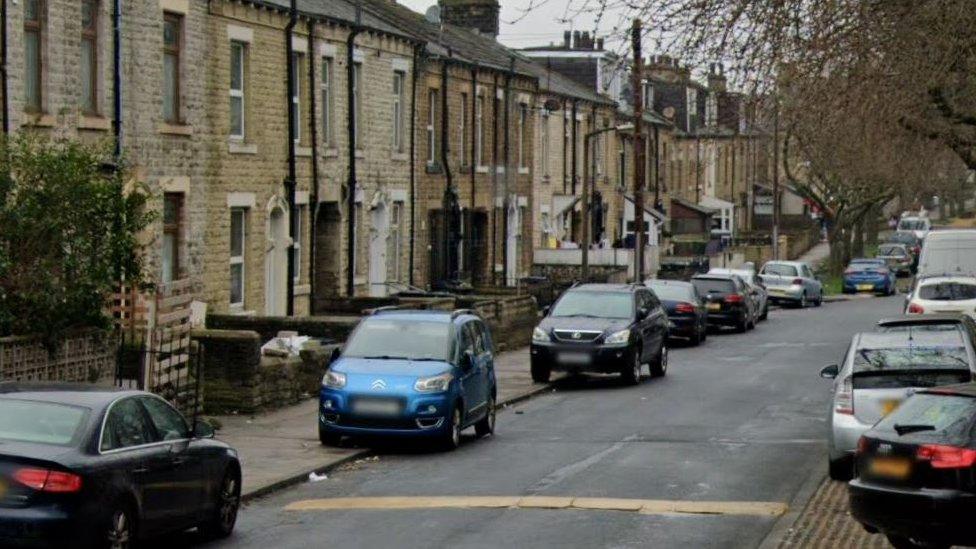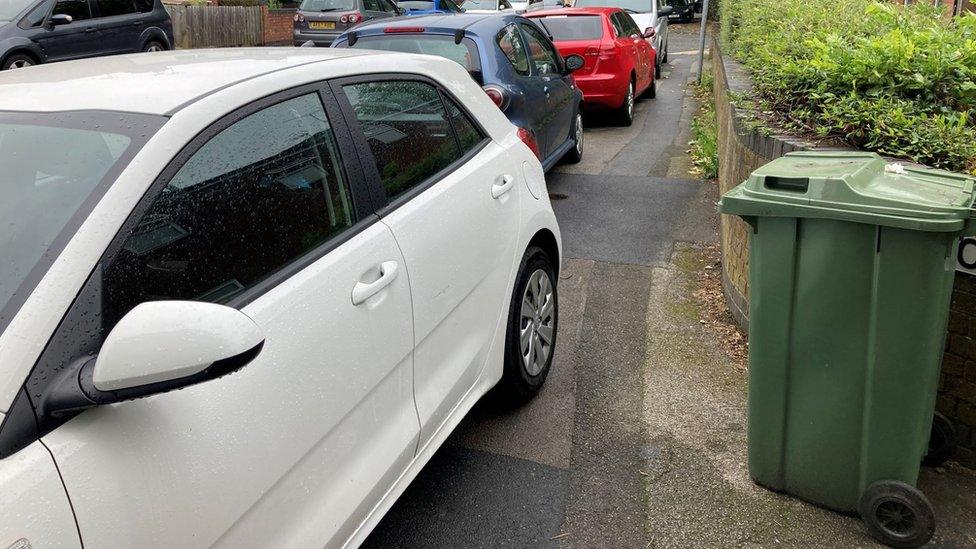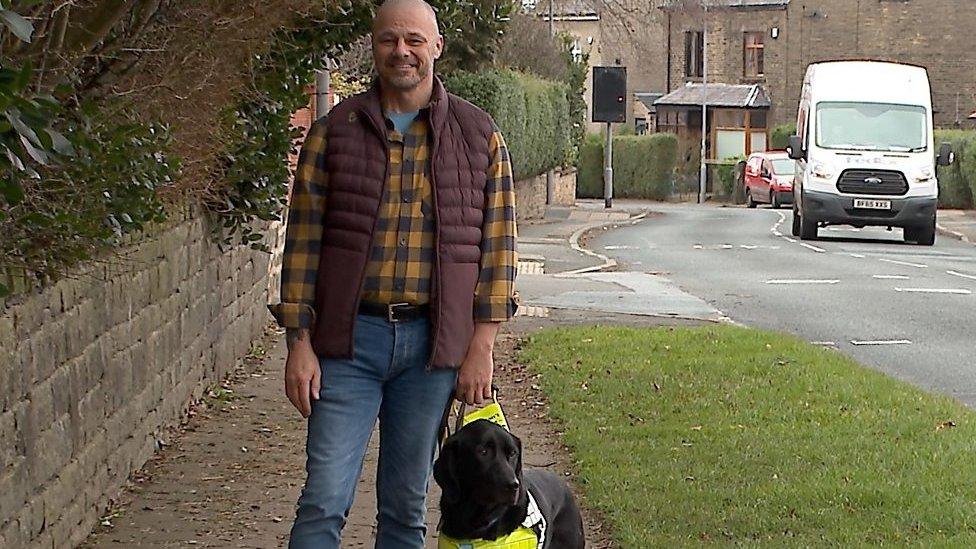Councillor critical of pavement parking ban consultation delay
- Published

The Department for Transport says its consultation response on the issue will be published "in due course"
A Bradford councillor has slammed the government for not publishing the results of a consultation on banning pavement parking.
Matt Edwards said the issue was was "one of the most consistent complaints" he received as a councillor.
He said there had been "silence" from the Department for Transport (DfT) since the study was completed in 2020.
A DfT spokesperson previously said its consultation response would be "published in due course".
London is currently the only area in England where it is banned.
Mr Edwards, leader of the Greens on Bradford Council, also called for the local authority to do more to deal with the issue.
The councillor, who represents the Tong ward, said vehicles parked on the pavement and grass verges were "a common sight" across the district.
"Parking on the pavement creates a hazard for people walking and wheeling and puts people at risk of injury by forcing them into the road," he said.
'Still waiting'
At a meeting on Tuesday, he told councillors vehicles parked on pavements cost the council thousands of pounds a year in damaged paving.
He said 15,000 people who took the time to take part in the government consultation were "still waiting for a response".
"In November 2020, the consultation on pavement parking ended - and since then silence," he said.
Mr Edwards called for the identification of pavement parking hotspots and using whatever powers the council legally had to help tackle the issue.
Meanwhile, Liberal Democrat councillor Alun Griffiths said: "It is a gross dereliction of the government's duty that they did a consultation over three years ago but have not yet given the results."
A DfT spokesperson told the Local Democracy Reporting Service: "Everyone should be able to navigate their streets without obstacles.
"While local authorities already have powers to prohibit it through local regulation, we have consulted on further helping them take action."
"The response to this will be published in due course," they added.

Follow BBC Yorkshire on Facebook, external, Twitter, external and Instagram, external. Send your story ideas to yorkslincs.news@bbc.co.uk, external.
- Published10 February 2024

- Published4 February 2022
